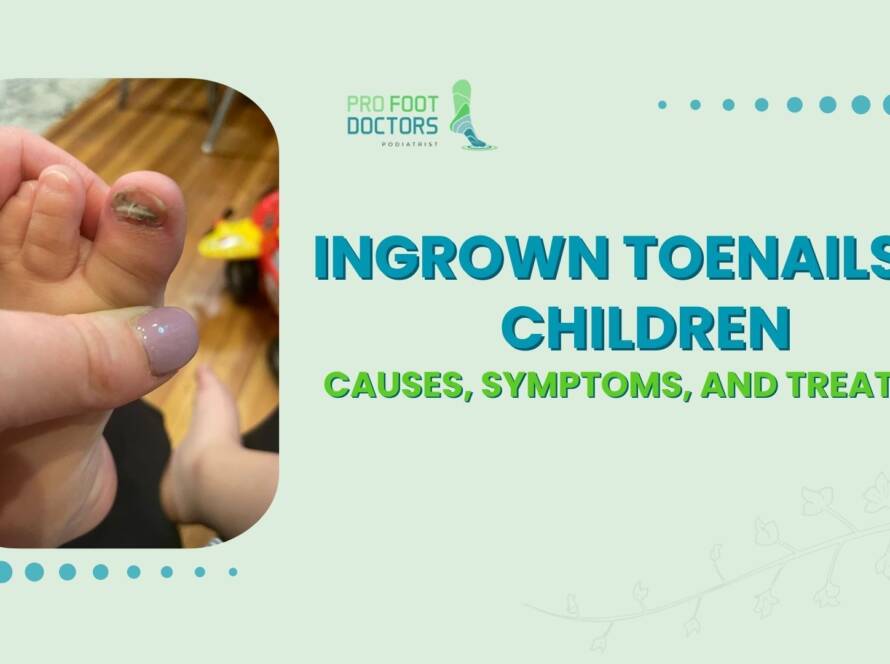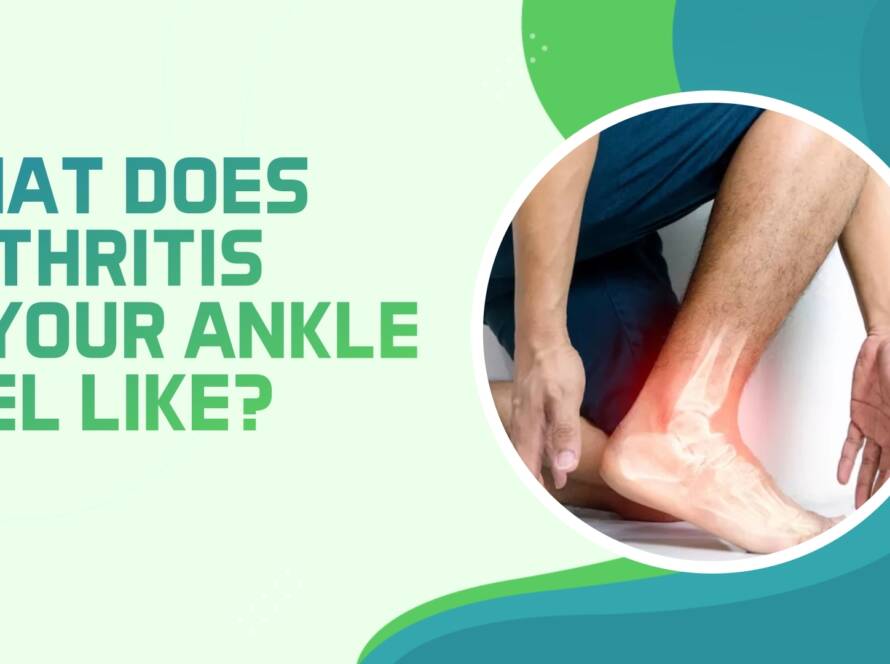You have the strongest and largest tendon in your body – the Achilles tendon. The Achilles tendon links your calf muscles to your heel bone, enabling walking, running, and jumping movements. An Achilles tendon injury leads to both intense pain and reduced mobility functions.
You can experience either mild Achilles tendon strain or a severe complete tear. Failure to treat your symptoms will lead to worse conditions. You need to seek immediate professional medical consultation when you notice any signs of injury.
Common Symptoms of a Hurt Achilles Tendon
Achilles tendon functions as a key structure for body movements. Injured Achilles tendons complicate even the simplest movement, such as walking, which becomes uncomfortable. The severity of symptoms from an injury varies based on how badly the tendon has been affected.
Early identification of symptoms helps stop unnecessary complications and supports correct medical care.
1. Pain in the Back of the Leg
Pain is the most obvious sign of an Achilles tendon injury. The pain usually starts as a mild ache above your heel. It can get worse after physical activity, especially running or climbing stairs. If the tendon is torn, the pain can be sudden and sharp.
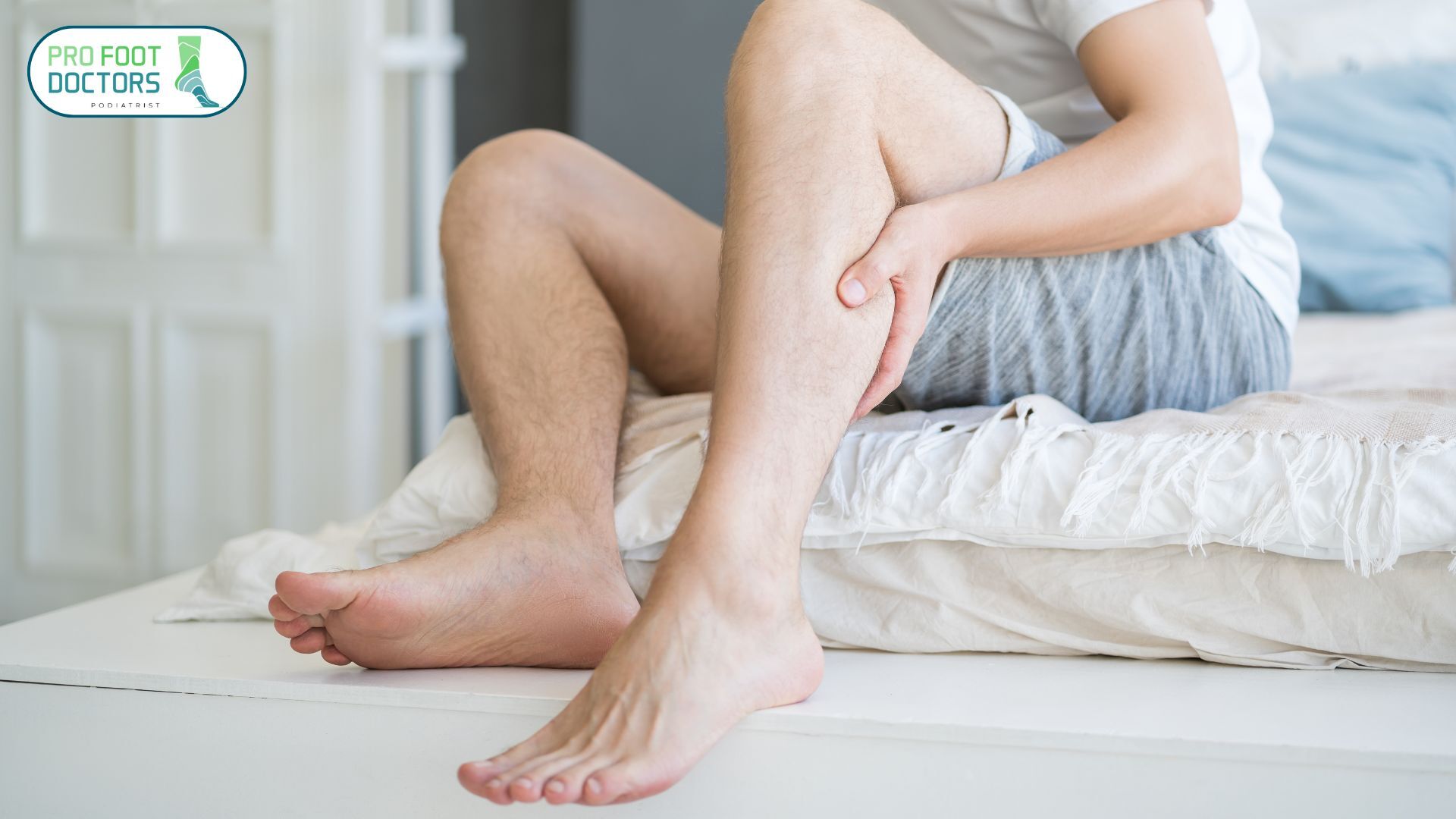
2. Swelling and Stiffness
An injured Achilles tendon often swells. The area may feel warm and tender to the touch. In the morning, stiffness is common. The tendon may loosen up as you move, but the discomfort often returns after rest.
3. Difficulty Walking or Standing on Toes
Your Achilles tendon helps you push off the ground while walking. If it is injured, walking may become difficult. You may also struggle to stand on your toes or climb stairs. A severe injury can make these movements impossible.
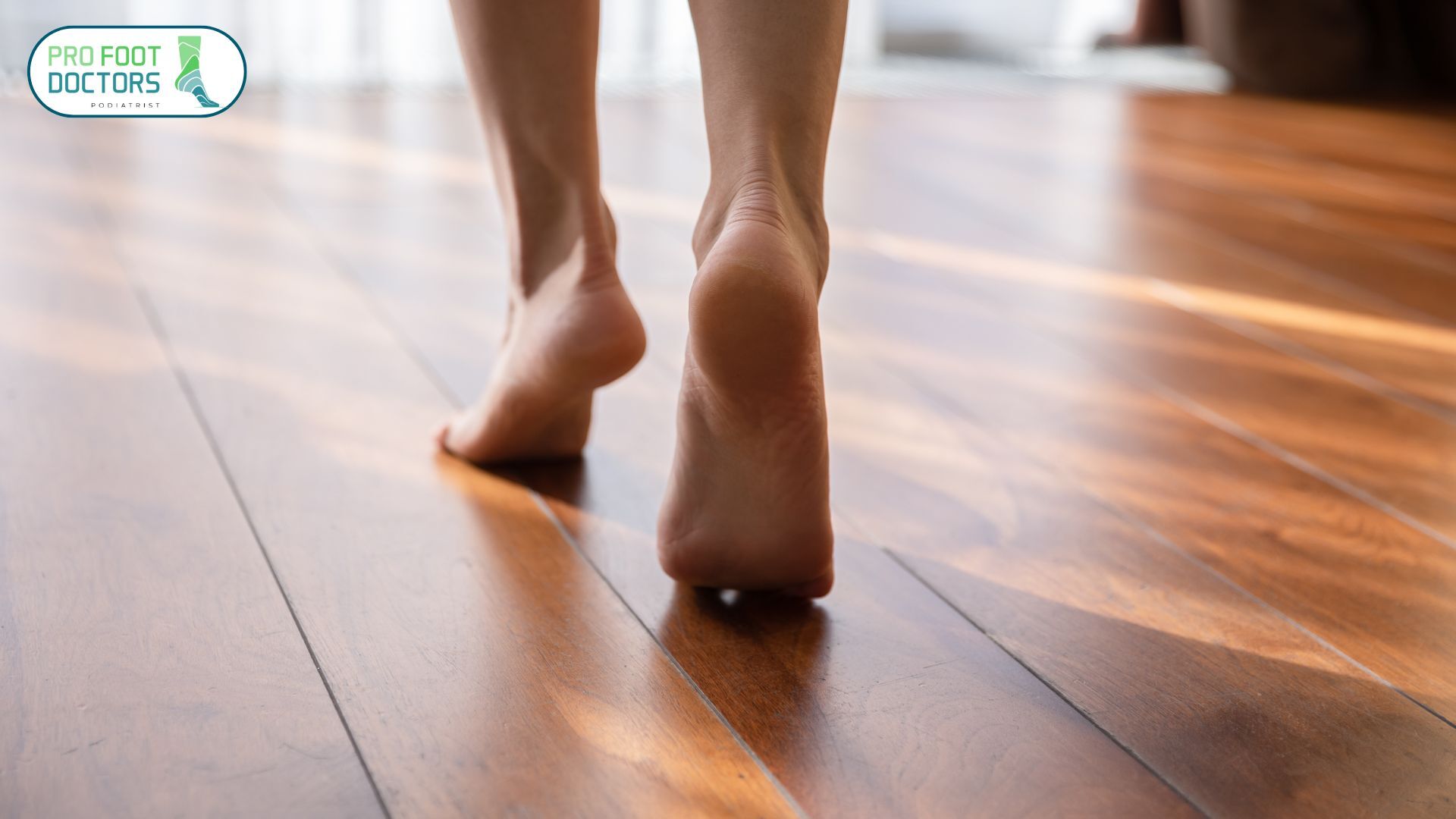
4. A Snapping or Popping Sound
If your Achilles tendon ruptures, you may hear a popping or snapping sound at the moment of injury. This is often followed by intense pain and an inability to walk properly.

5. Weakness in the Leg
A strained or torn Achilles tendon can make your leg feel weak. You may notice a lack of power when pushing off while walking or running. This weakness can make even simple movements feel difficult.

6. Bruising or Discoloration
In more serious injuries, bruising may appear around the heel or calf. This happens due to internal bleeding from a tendon tear. The skin may look red, purple, or blue, and the area may be tender to touch.
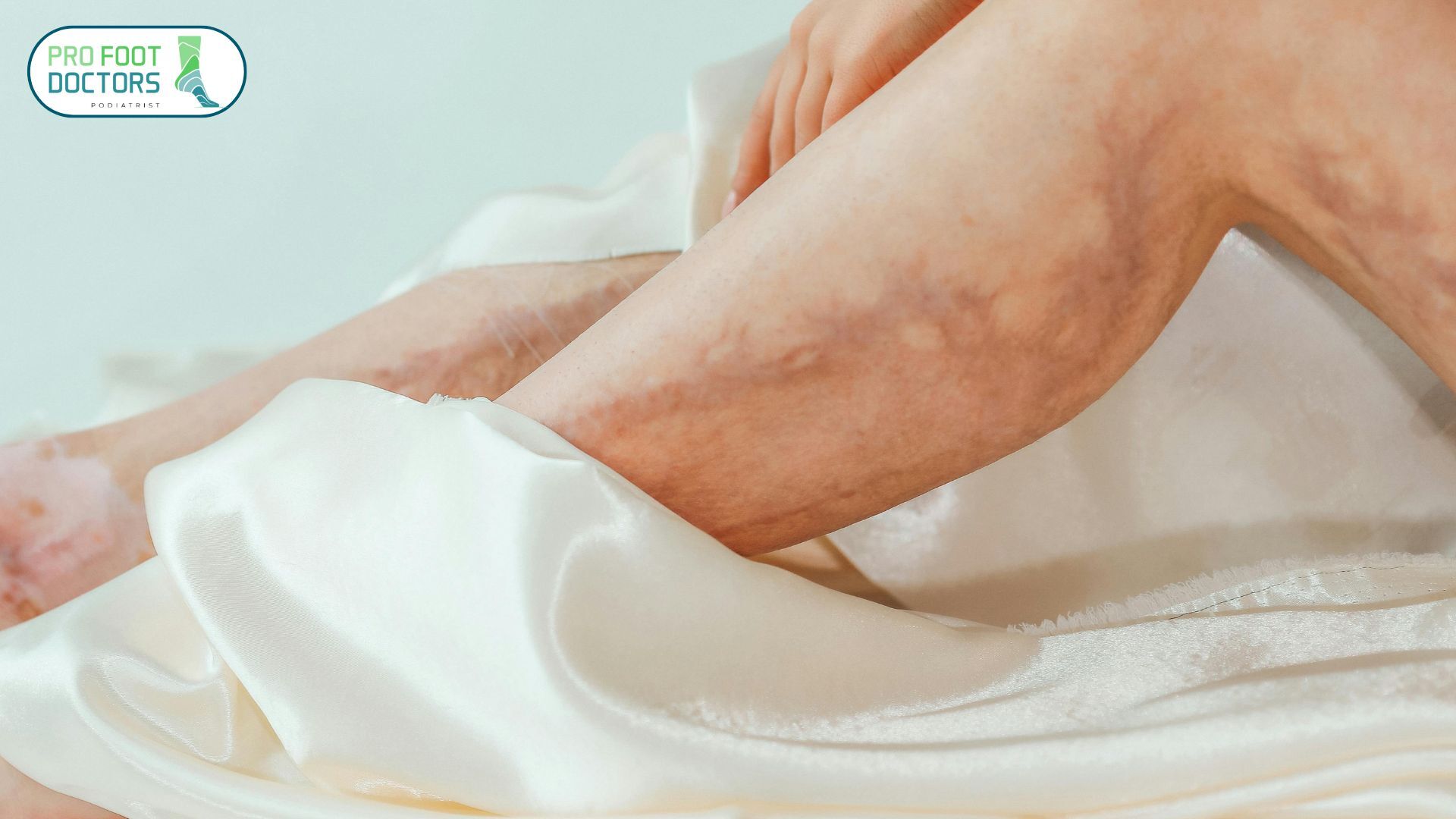
7. A Noticeable Gap in the Tendon
If the tendon is completely torn, you may feel a gap or indentation in the back of your ankle. This is a clear sign of a rupture and requires immediate medical attention.
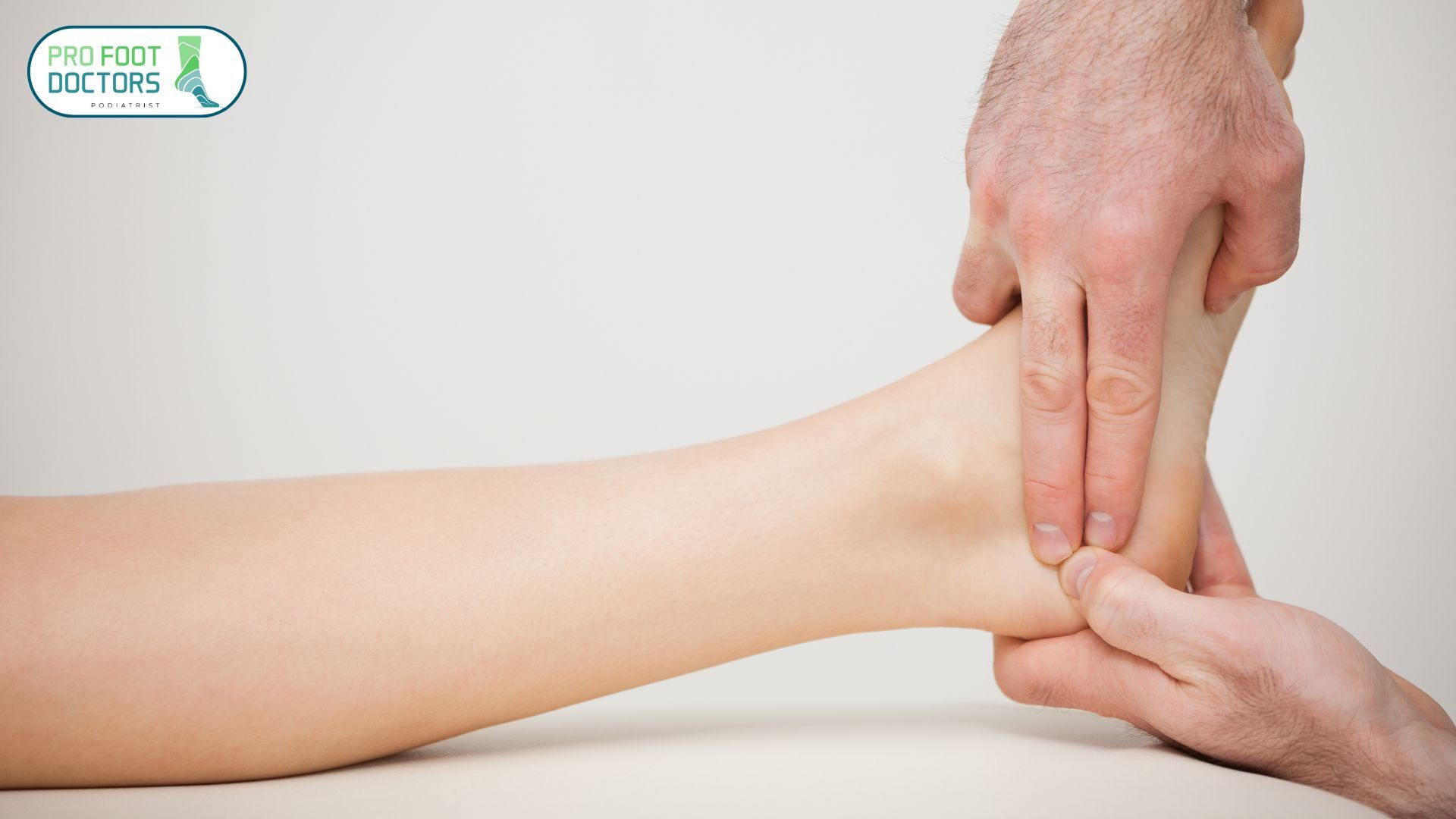
Causes of Achilles Tendon Injuries
Achilles tendon injuries happen for various reasons, and knowing the causes can help in prevention. Some injuries develop gradually due to overuse, while others occur suddenly from strain or trauma. Understanding these risk factors can help you take steps to protect your tendon.
- Overuse
Repetitive stress from running, jumping, or high-impact activities can weaken the tendon over time.
- Lack of Stretching
Tight calf muscles increase tension on the Achilles tendon, making it more prone to injury.
- Wearing the Wrong Shoes
Poorly fitted or unsupportive footwear fails to absorb impact, leading to strain on the tendon.
- Sudden Increase in Activity
Rapidly increasing exercise intensity without proper conditioning can overload the tendon.
- Aging
As you age, the tendon naturally loses flexibility and strength, making it more vulnerable to tears.
- Medical Conditions
Conditions like arthritis, diabetes, or obesity can reduce blood flow and weaken the tendon, increasing injury risk.
Diagnosis and Treatment
A doctor will examine your foot and may recommend imaging tests like an ultrasound or MRI. Treatment depends on the severity of the injury.
- For Minor Injuries
Rest, ice, compression, and elevation (RICE) can help. Physical therapy and stretching exercises also aid recovery.
- For Severe Tears or Ruptures
Surgery may be needed. After surgery, physical therapy is crucial for regaining strength and flexibility.
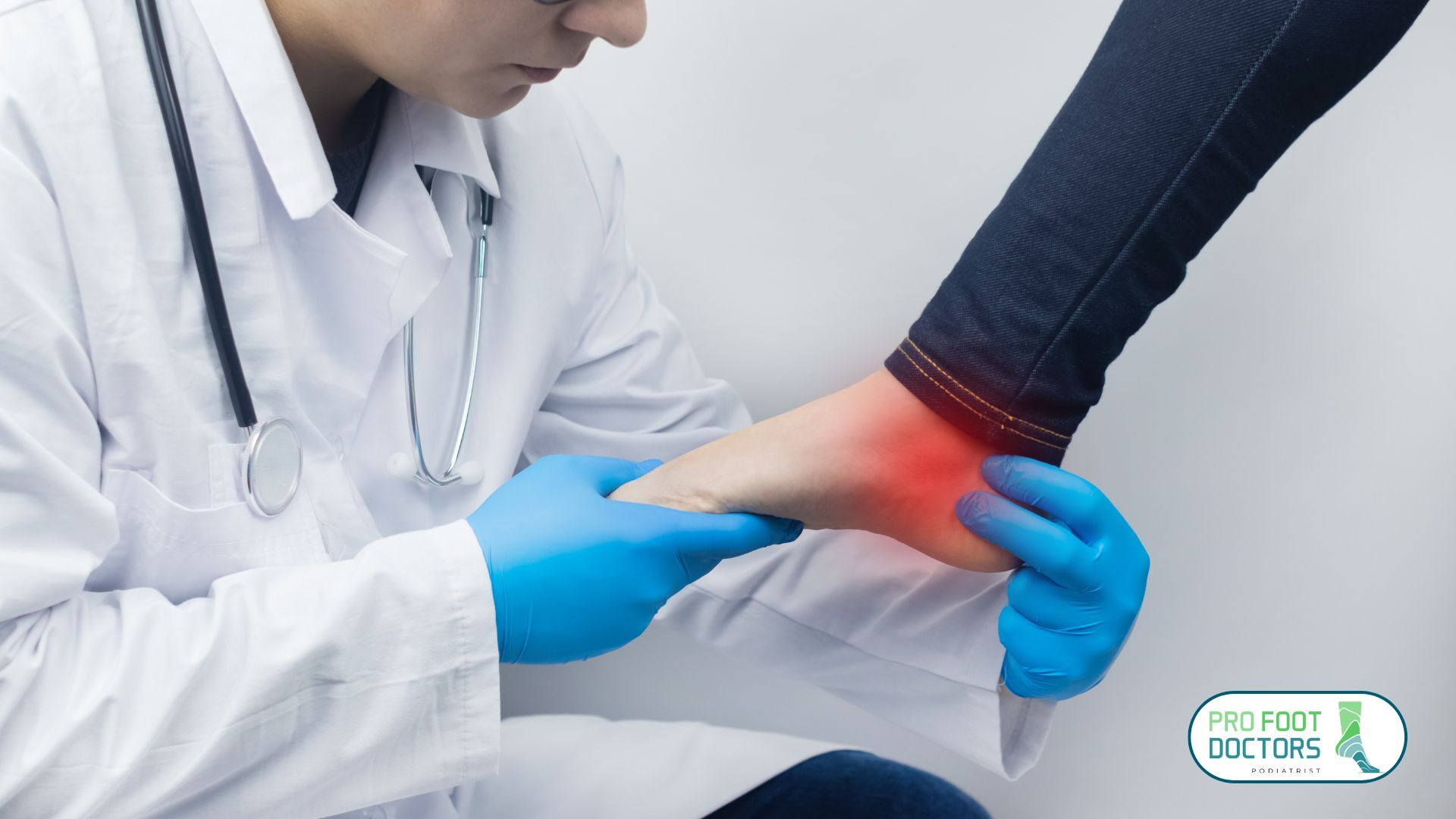
Prevention Tips
Preventing an Achilles tendon injury is not only possible but essential. While some risk factors like aging cannot be controlled, most injuries result from overuse, poor conditioning, or improper footwear. By taking the right precautions, you can reduce strain on the tendon and keep it strong. Simple lifestyle changes can make a big difference.
- Stretch your calves daily.
- Wear proper shoes with good support.
- Increase activity levels gradually.
- Strengthen your calf muscles with exercises.
- Listen to your body and rest when needed.
Why You Should Seek Professional Help
Achilles tendon injuries can be serious. Without proper treatment, they can lead to chronic pain and mobility issues. Early intervention makes recovery faster and more effective.
We at Profoot understand how crucial foot health is. Our experts specialize in treating Achilles tendon injuries. If you are experiencing any of these symptoms, don’t wait. Book a consultation with us today. Let’s get you back on your feet, pain-free.
Frequently Asked Questions
How can I tell if I have an Achilles heel injury?
You may experience pain, swelling, or stiffness at the back of your ankle. Walking, running, or standing on your toes may feel difficult. In severe cases, you might hear a popping sound, indicating a rupture. If you notice these symptoms, seek medical attention immediately.
Can I walk if my Achilles is torn?
Walking with a torn Achilles tendon is extremely difficult and painful. A complete tear often causes a loss of strength and mobility. You may need crutches or a walking boot. Seeking prompt medical care is crucial to avoid worsening the injury and ensure proper healing.
Is it OK to walk with Achilles pain?
Mild Achilles pain may improve with rest and stretching, but persistent pain should not be ignored. Walking on an injured tendon can worsen the damage. If pain continues, avoid excessive activity and consult a specialist for proper diagnosis and treatment.
How should I sleep with Achilles pain?
Sleeping with Achilles pain can be uncomfortable. Elevate your foot with a pillow to reduce swelling. Avoid sleeping with your foot in a pointed position. Gentle stretching before bed and using ice packs can also help relieve discomfort and promote better sleep.

